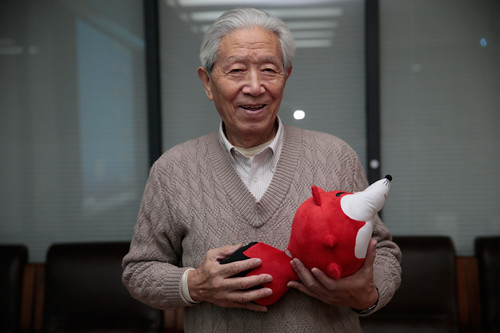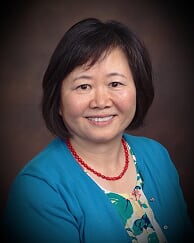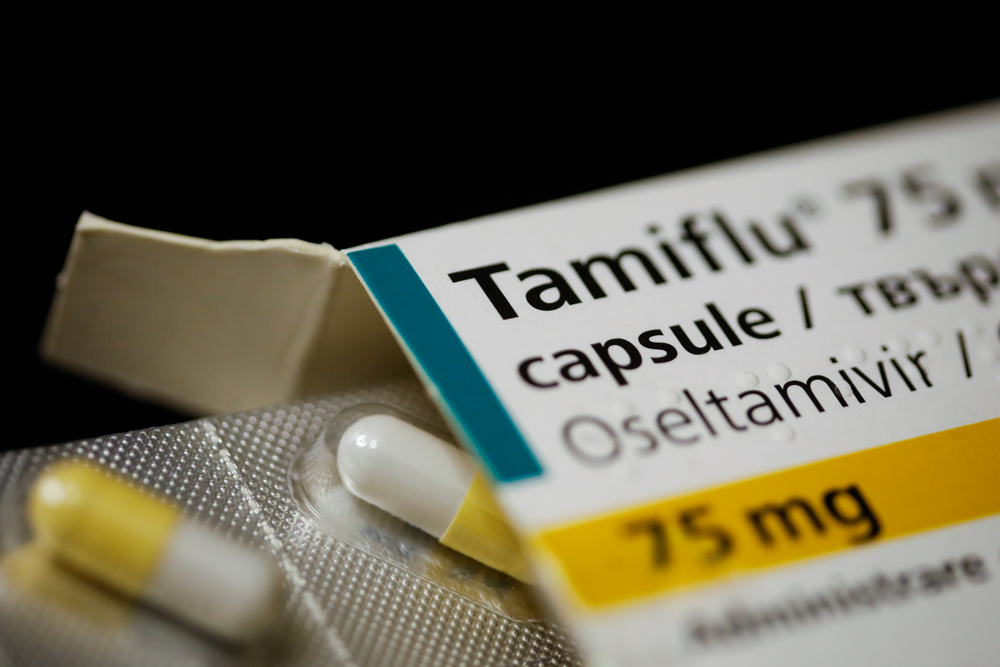Insight
From Covid-19 to SARS: what becomes of the whistleblowers?
Following death of Chinese doctor Li Wenliang, the man who tried to warn officials about the threat of Covid-19, Chloe Kent finds out about the role of whistleblowers in healthcare and what happened to those who tried to warn us about the threat of serious health risks in the past.
On 30 December 2019, Li Wenliang, an ophthalmologist working in the Chinese city of Wuhan, took to WeChat to warn fellow medics about several patients who had come down with a serious respiratory illness after visiting a local wet market. Resembling severe acute respiratory syndrome (SARS), the viral zoonotic disease that claimed 774 lives in the early 2000s. the now known as Covid-19 was causing a fever, cough and shortness of breath, as well as a collective of secondary symptoms.
When the content of the WeChat conversation became public, Chinese officials attempted to silence Li for his remarks. He was accused of spreading rumours and forced to sign a letter admitting to “making false comments” and having “seriously disrupted the social order”.
Li proceeded to contract Covid-19 from a patient who saw him in relation to glaucoma, and died as a result of the disease on 7 February 2020. Posthumously exonerated, the Communist Party of China has now offered an apology to his family and revoked the accusations against him.
Whistleblower support charity Protect head of policy Andrew Pepper-Parsons says: “Often a whistleblower isn’t in a position to be able to take action. They’re a witness to something and they’re looking to someone in authority to deal with that particular issue. The motivating factor is for action to be taken on whatever they’ve seen.”
Suppression surrounding SARS
Covid-19 isn’t the first time the gravity of a coronavirus’ severity has been downplayed in China. When SARS began to spread throughout the country in late 2002 and early 2003, the number of cases reported in the mainland was drastically understated by the authorities.
In April 2003 Jiang Yanyong, a Chinese physician, emailed an 800-word letter to Chinese Central Television -4 and Phoenix TV, stating that at least 100 people were being treated in Beijing hospitals for SARS at the time.
While neither stations published his letter, the information managed to reach both The Wall Street Journal and Time magazine. Time translated Jiang’s letter into English and published it, making the public aware of the true scale of the epidemic in China for the first time. Following this, both the Mayor of Beijing and the Minister of Public Health resigned and China was forced to actively deal with the rapidly-spreading disease.
China was forced to actively deal with the rapidly-spreading disease.
For his actions, in August 2004 Jiang was awarded the Ramon Magsaysay Award for Public Service. The New York Academy of Sciences also awarded him the Heinz R. Pagels Human Rights of Scientists Award in 2007.
Initially hailed as a hero in both Chinese and international media, Jiang fell out of favour with the authorities in both in 2004 and 2019 due to sentiments expressed about the 1989 Tiananmen Square protests.
In February 2004, he wrote an open letter to Premier Wen Jiabao calling for a reassessment of the responsibility borne by the Chinese government in relation to the Tiananmen Square Massacre. As a result, on 2 June 2004, Jiang and his wife were placed under military custody before being released on 19 July 2004.
Years later, in a March 2019 letter to Chinese Communist Party General Secretary Xi Jinping, Jiang called the crackdown on student protests in Tiananmen Square a crime. Shortly thereafter Jiang’s friends reported that they as lost contact with him, and he is believed to have been placed under house arrest since last year.

Image: Flicker
Hepatitis, HIV and uncomfortable truths
When it comes to whistleblowers like Chelsea Manning, who leaked videos of airstrikes in the Middle East and files from Guantanamo Bay, it’s not hard to understand why the information is being kept secret in the first place. This can be more complex in the context of public health. When diseases begin to spread at a rapid rate even the most cautious among us can be at risk, and it’s difficult to understand why an authority would keep this kind of information under wraps.
Pepper-Parsons says: “It can be embarrassment, it can be that an organisation doesn’t agree with the whistleblower, and therefore the whistleblower becomes a target. If it’s an uncomfortable truth, they turn on them because it makes them look bad.”
This appears to be true in the case of Shuping Wang, a whistleblower who exposed HIV and hepatitis epidemics in central China in the 1990s.
In 1991 Wang was working in the province of Henan at a plasma collection station. At the time it wasn’t uncommon for people to sell their blood to government-run blood banks, but poor collection practises were leaving many donors infected with hepatitis.
When Wang warned senior colleagues, she was shut down and informed that changing track would be too costly. She then reported the matter to the Ministry of Health, which led to the authority announcing that all blood donors would need to undergo a hepatitis C screening to reduce the risk of the disease spreading. But back at the blood bank, Wang was forced out of her job and transferred to work in a health bureau.
If it’s an uncomfortable truth, they turn on them because it makes them look bad.
In 1995, she uncovered another health scandal, when she discovered that an HIV+ donor had sold blood in four different areas. Hunan authorities again informed her that screening the blood for HIV would be too expensive, so Wang took matters into her own hands. She purchased HIV test kits and tested over 400 samples from random donors, and found the HIV infection rate to be 13%.
She took her results to officials in Beijing, and in 1996 all blood and plasma collections across China were shut down for “rectification”, and later re-opened with HIV screening added.
None of this made Wang’s life particularly easy. The former leader of the health bureau where she worked came to her testing centre, smashed up her testing equipment and assaulted her with a baton. She lost her job, and health officials advised her against seeking further employment. Her husband, who worked at the Ministry of Health, was ostracised by his colleagues. The marriage eventually broke down.
Wang relocated to the US in 2001. She never returned to China, and died of a heart attack while hiking in September 2019.
In the same year, the Chinese Government admitted it had faced a serious AIDS crisis in central China. More than half a million people became infected after selling their blood to local blood banks. The Henan province was one of the worst affected.

Image: Gary Christensen SLCUTAHUS / CC BY-SA
What makes a whistleblower?
“Most whistleblowers are from a workplace context,” says Pepper-Parsons. “Insider information from within an organisation tends to be the most valuable source. But it might well be someone who works somewhere else in the sector who picks up on a problem from a different organisation.”
A recently unsealed whistleblower lawsuit against pharma giant Hoffman-La Roche is one such case.
The lawsuit claims that Roche cheated US federal and state governments out of $1.5bn by misrepresenting the efficacy of its anti-influenza medication Tamiflu. Roche maintained that the drug could be effective at containing potential pandemics, leading US healthcare authorities to stockpile vast quantities of the drug.
The whistleblower in question is Dr Thomas Jefferson, a physician and researcher who works with the Cochrance Collaboration research network. Having researched neuraminidase inhibitors like Tamiflu for over two decades, he began questioning the drug’s efficacy in 2009 and started pressuring Roche to release its underlying clinical study data. When he finally received it in 2013, he concluded that the data did not support the company’s claims about the effectiveness for the use of the drug in an influenza pandemic.
The ability to break out and raise something to an independent body is vital.
Data analysed by the US Food and Drug Administration (FDA) suggests that while Tamiflu can reduce the duration of flu symptoms or prevent their onset it has no effect on transmission or infection.
A Roche spokesperson says: “Roche has complete confidence in the safety and efficacy of Tamiflu. The Company plans to vigorously defend itself against these allegations if Thomas Jefferson decides to pursue the litigation.”
Jefferson and his lawyers have brought claims against Roche under the False Claims Act, which allows individuals to make claims on behalf of state bodies. Their lawsuit seeks reimbursement of taxpayer funds used to purchase and stockpile Tamiflu.
The judgement against Roche could see the company may more than $4.5bn, as the False Claims Act mandates the payment of triple damages plus civil penalties. The Act also entitles persons filing lawsuits under it to anywhere between 15% and 30% of what the government reaps as a result of the claim – far from ruining his life, Jefferson’s whistleblowing could stand to make him very wealthy.
“If you’re looking at whistleblowing in terms of a pandemic, organisations may try to cover up their lack of response, or inadequacies within it,” says Pepper-Parsons. “Regulators and journalists are key to that process. The ability to break out and raise something to an independent body is vital.”

Image: M.Moira / Shutterstock.com